- Home
- Dan Simmons
Worlds Enough & Time Page 6
Worlds Enough & Time Read online
Page 6
They were originally burrows dug out by pocket gophers came her soft voice, sounding mildly amused. The soil’s so tough and rocky up here, that not even earthworms tunnel, but the pocket gopher digs these shallow burrows. When the gopher goes away, the smaller meadow voles claim them. See where their feet have made the earth smooth? Look closer, Mr. Jakes.
I lay on the soft moss, laying my rifle ahead of me casually, as if just setting it out of the way. The barrel was aimed toward the boulders above. If something moved, I could be sighted in on it within two seconds. I glanced down at a collapsed gopher burrow. It did look like a dirt-smoothed toboggan run, one of hundreds that crisscrossed this section of tundra like an exposed labyrinth, like some indecipherable script left by aliens.
The vole keeps using these little highways in the winter, said Kelly Dahl. Under the snow. Up here we would see giant drifts and an empty, sterile world. But under the snow, the vole is shuttling around, carrying out her business, collecting the grasses she harvested and stored in the autumn, chewing out the centers of cushion plants, munching on taproots. And somewhere nearby, the pocket gopher is digging away.
Something gray did move near the boulders. I leaned closer to the collapsed vole run, closer to the rifle. The snow was suddenly thicker, whipping down the permafrost field like a curtain of gauze that now lifted, now lowered.
In the spring, continued Kelly Dahl’s soft voice in my head, the tops of all these pocket gopher tunnels appear from beneath the melting snowbanks. The ridges are called eskers and look like brown snakes looping around everywhere. You taught us that a pocket gopher up here could dig a tunnel more than a hundred feet long in a single night and move up to eight tons of topsoil per acre in a year.
“Did I teach that?” I said. The gray shape in the snow separated itself from the gray boulders. I quit breathing and set my finger on the trigger guard.
It’s fascinating, isn’t it, Mr. Jakes? That there’s one visible winter world up here on the tundra—cold, inhospitable, intolerable—but the most defenseless animals here just create another world right under the surface where they can continue to survive. They’re even necessary to the ecology, bringing subsoil up and burying plants that will decompose quicker underground. Everything fits.
I leaned forward as if to set my face to the plant, lifted the rifle in a single motion, centered the moving gray form in the crosshairs, and fired. The gray figure fell.
“Kelly?” I said as I ran panting up the tundra, moving from solifluction terrace to solifluction terrace.
There was no answer.
I expected nothing to be there when I arrived at the boulders, but she had fallen exactly where I had last seen the movement. The arterial blood was bright, excruciatingly bright, the single bold color almost shocking on the dim and dun tundra. The bullet had taken her behind the right eye, which was still open and questioning. I guessed that the cow elk was an adult but not quite fully grown. Snowflakes settled on its gray, hairy side, still melted on the pink of its extruded tongue.
Gasping for breath, I stood straight and spun around, surveying the rocks, the tundra, the lowering sky, the clouds rising like wraiths from the cold valleys below. “Kelly?”
Only the wind responded.
I looked down. The elk’s luminous but fading black eye seemed to be conveying a message.
Things can die here.
THE last time I saw Kelly Dahl in the real world, the other world, had been at a late-season basketball game. I hated basketball—I hated all of the school’s inane and insanely cheered sports—but it was part of my job as low-man-on-the-totem-pole English teacher to do something at the damn events, so I was ticket-taker. At least that way I could leave twenty minutes or so into the game when they closed the doors.
I remember coming out of the gym into the freezing darkness—it was officially spring but Colorado rarely recognizes the end of winter until late May, if then—and seeing a familiar figure heading down Arapaho going the opposite direction. Kelly Dahl had not been in class for several days that week, and rumor was that she had moved. I jogged across the street, avoiding patches of black ice, and caught up to her under a streetlight a block east of the school.
She turned as if unsurprised to see me, almost as if she had been waiting for me to follow her. “Hey, Mr. Jakes. What’s happening?” Her eyes were redder than usual, her face pinched and white. The other instructors were sure that she was using drugs and I had finally, reluctantly, come to the same conclusion. There was little trace of the eleven-year-old girl in the gaunt woman’s face I stared into that night.
“You been sick, Kelly?”
She returned my stare. “No, I just haven’t been going to school.”
“You know Van Der Mere will call in your mother.”
Kelly Dahl shrugged. Her jacket was far too thin for such a cold night. When we spoke, our breath hung between us like a veil. “She’s gone,” said Kelly.
“Gone where?” I asked, knowing it was none of my business but feeling the concern for this child rise in me like faint nausea.
Again the shrug.
“You coming back to school on Monday?” I asked.
Kelly Dahl did not blink. “I’m not coming back.”
I remember wishing at the time that I had not given up smoking the year before. It would have been good at that moment to light a cigarette and take a drag before speaking. Instead, I said, “Well, shit, Kelly.”
The pale face nodded.
“Why don’t we go somewhere and talk about it, kiddo.”
She shook her head. A car roared past and slid into the school parking lot, latecomers shouting. Neither of us turned to look.
“Why don’t we…” I began.
“No,” said Kelly Dahl. “You and I had our chance, Mr. Jakes.”
I frowned at her in the cold light from the streetlamp. “What do you mean?”
For a long moment I was sure she would say nothing else, that she was on the verge of turning away and disappearing into the dark. Instead, she took a deep breath and let it out slowly. “You remember the year…the seven months… I was in your sixth-grade class, Mr. Jakes?”
“Of course.”
“You remember how I almost worshipped the ground you walked on…excuse the cliché.”
It was my turn to take a breath. “Look, Kelly, a lot of kids in sixth grade, especially girls…”
She waved me into silence, as if we had too little time for such formalized dialogue. “I just meant I thought you were the one person who I might have talked to then, Mr. Jakes. In all the middle of what was going on…my mother, Carl…well, I thought you were the most solid, real thing in the universe that crazy, fucked-up winter.”
“Carl…” I said.
“My mother’s boyfriend,” said Kelly in that soft voice. “My…stepfather.” I could hear the heavy irony in her voice, but I could hear something else, something infinitely more ragged and sad.
I took half a step in her direction. “Did he…was there…”
Kelly Dahl twitched a half-smile in the cold light. “Oh, yeah. He did. There was. Every day. Not just that school year, but most of the summer before.” She looked away, toward the street.
I had the urge to put an arm around her then—seeing the girl there rather than the gaunt young woman—but all I could do was ball my hands into fists, tighter and tighter. “Kelly, I had no idea…”
She was not listening or looking at me. “I learned how to go away then. Find the other places.”
“Other places…” I did not understand.
Kelly Dahl did not look at me. Her punk mohawk and streaked hair looked pathetic in the flat, cold light. “I got very good at going away to the other places. The things you were teaching us helped—I could see them, you taught them so clearly—and whatever I could see, I could visit.”
My insides were shaking with the cold. The child needed psychiatric help. I thought of all the times I had referred children to school counselors and district
psychologists and county social services, always to see little or nothing done, the child returned to whatever nightmare they had temporarily found themselves free of.
“Kelly, let’s…”
“I almost told you,” continued Kelly Dahl, her lips thin and white. “I worked up the nerve all that week in April to tell you.” She made a brittle sound that I realized was a laugh. “Hell, I’d been working up nerve all that school year to tell you. I figured that you were the one person in the world who might listen…might believe…might do something.”
I waited for her to go on. Cheers came from the school gym a block away.
Kelly Dahl looked at me then. There was something wild in her green eyes. “Remember I asked if I could stay after school and talk to you that day?”
I frowned, finally had to shake my head. I could not remember.
She smiled again. “It was the same day you told us you were leaving. That you’d taken a job teaching at the high school, that they needed somebody because Mrs. Webb had died. You told us that there’d be a substitute teacher with us the rest of the year. I don’t think you expected the class to get all upset the way it did. I remember most of the girls were crying. I wasn’t.”
“Kelly, I…”
“You didn’t remember that I’d said I wanted to see you after school,” she said, her voice an ironic whisper. “But that was okay, because I didn’t stay anyway. I don’t know if you remember, but I wasn’t one of the kids who hugged you good-bye after the surprise going away party that the kids threw that next Friday.”
We looked at each other for a silent moment. There were no cheers from the gym. “Where are you going, Kelly?”
She looked at me so fiercely that I felt a pang of fear that moment, but whether for her or me, I am not sure. “Away,” she said. “Away.”
“Come to the school on Monday to talk to me,” I said, stepping closer to her. “You don’t have to come to class. Just come by the home room and we’ll talk. Please.” I raised my hands but stopped just short of touching her.
Kelly Dahl’s stare did not waver. “Good-bye, Mr. Jakes.” Then she turned and crossed the street and disappeared in the dark.
I thought about following her then, but I was tired, I’d promised Allan that we would go into Denver to shop for baseball cards the next morning, and whenever I got home late from some school thing, Maria was sure that I’d been out with another woman.
I thought about following Kelly Dahl that night, but I did not.
On Monday she did not come. On Tuesday I called her home, but there was no answer. On Wednesday I told Mr. Van Der Mere about our conversation and a week later social services dropped by the trailer park. The trailer had been abandoned. Kelly’s mother and the boyfriend had left about a month before the girl had quit coming to school. No one had seen Kelly Dahl since the weekend of the basketball game.
A month later, when word came that Kelly Dahl’s mother had been found murdered in North Platte, Nebraska, and that Carl Reems, her boyfriend, had confessed to the crime after being caught in Omaha, most of the teachers thought that Kelly had been murdered as well, despite the chronology to the contrary. Posters of the seventeen-year-old were seen around Boulder for a month or so, but Reems denied doing anything to her right up to his conviction for the murder of Patricia Dahl. Kelly was probably considered to be just another runaway by the police, and she was too old for her face to appear on milk cartons. It seemed there were no relatives who cared to pursue the subject.
It was early that summer that the pickup came across the centerline and Allan died and I ceased to live.
I find Kelly Dahl by mistake.
It has been weeks, months, here in this place, these places. Reality is the chase, confirmation of that reality is the beard I have grown, the deer and elk I kill for fresh food, the pain in my side and arm as the arrow wound continues to scar over, the increasing fitness in my legs and lungs and body as I spend ten to fourteen hours a day outside, looking for Kelly Dahl.
And I find her by mistake.
I had been returning to the Front Range from following signs of Kelly Dahl south almost to the Eisenhower Tunnel, I had lost her for a full day, and now evening shadows found me south of Nederland along the Peak to Peak Highway. Since there might be no highway when morning came if the time/place shifted, I stopped at a forest service campground—empty of people and vehicles, of course—pitched my tent, filled my water bottles, and cooked up some venison over the fire. I was fairly sure that the last few days had been spent in that 1970-ish landscape in which I’d first found myself—roads and infrastructure in place, people not—and true autumn was coming on. Aspen leaves filled the air like golden parade confetti and the evening wind blew cold.
I find Kelly Dahl by becoming lost.
I used to brag that I have never been lost. Even in the densest lodgepole pine forest, my sense of direction has served me well. I am good in the woods, and the slightest landmark sets me on my way as if I have an internal compass that is never off by more than two or three degrees. Even on cloudy days the sunlight speaks direction to me. At night, a glimpse of stars will set me straight.
Not this evening. Walking out of the empty campground, I climb a mile or so through thick forest to watch the sun set north of the Arapahoes but south of Mt. Audubon. Twilight does not linger. There is no moon. Beyond the Front Range to the east, where the glow of Denver and its string of satellite cities should be, there is only darkness. Clouds move in to obliterate the night sky. I cut back toward the campground, dropping down from one ridge to climb another, confident that this way is shorter. Within ten minutes I am lost.
The sensation of being lost without my rifle, without a compass, with only the Ka-bar knife in its sheath on my belt, is not disturbing. At first. Ninety minutes later, deep in a lodgepole thicket, miles from anywhere, the sky above as dark as the forest below, I am beginning to be worried. I have worn only my sweater over a flannel shirt; it may snow before morning. I think of my parka and sleeping bag back at the campsite, of the firewood stacked in the circle of stones and the hot tea I was planning to have before turning in.
“Idiot,” I say to myself, stumbling down a dark slope, almost plunging into a barbed wire fence. Painfully picking my way over the fence—sure that there had been no fences near the campground—I think again, idiot, and begin to wonder if I should hunker down for the cold wait until dawn.
At that moment I see Kelly Dahl’s fire.
I never doubt it is her fire—I have been here long enough to know that she is now the only other person in our universe—and, when I come closer, moving silently through the last twenty meters of brush to the clearing, it is indeed Kelly Dahl, sitting in the circle of light from the flames, looking at a harmonica in her hands and seemingly lost in thought.
I wait several minutes, sensing a trap. She remains engrossed in the play of firelight on the chrome surface of the instrument, her face mildly sunburned. She is still wearing the hiking boots, shorts, and thick sweatshirt I had last seen her in three days earlier, just after leaving Mont-Saint-Michel. Her hunting bow—a powerful bend of some space-age composite, several steel-edged killing arrows notched onto the frame—lies strung and ready against the log she sits on.
Perhaps I make a noise. Perhaps she simply becomes aware of my presence. Whatever the reason, she looks up—startled, I see—her head moving toward the dark trees where I hide.
I make the decision within a second. Two seconds later I am hurtling across the dark space that separates us, sure that she will have time to lift the bow, notch the arrow, and let fly toward my heart. But she does not turn toward the bow until the last second and then I am on her, leaping across the last six feet, knocking her down and sideways, the bow and the deadly arrows flying into the darkness on one side of the log, Kelly and me rolling near the fire on the other side.
I guess that I am still stronger but that she is quicker, infinitely more agile. I think that if I act quickly enough, this will not
matter.
We roll twice and then I am on top of her, slapping away her hands, pulling the Ka-bar knife from its sheath. She swings a leg up but I pin it with my own, swing my other knee out, squeeze her legs together beneath me with the strength of my thighs. Her hands are raking at my sweater, nails tearing toward my face, but I use my left arm and the weight of my upper body to squeeze her arms between us as I lean forward, the knife moving to her throat.
For a second, as the tempered steel touches the pulsing flesh of her neck, there is no more movement, only my weight on hers and the memory of the moment’s wild friction between us. We are both panting. The wind scatters the sparks of the fire and blows aspen leaves out of the darkness above us. Kelly Dahl’s green eyes are open, appraising, surprised but unafraid, waiting. Our faces are only inches apart.
I move the knife so that the cutting edge is turned away from her throat, lean forward, and kiss her gently on the cheek. Pulling my face back so that I can focus on her eyes again, I whisper, “I’m sorry, Kelly.” Then I roll off her, my right arm coming up against the log she had been sitting on.
Kelly Dahl is on me in a second, lunging sideways in a fluid manner that I have always imagined, but never seen, a panther strike. She straddles my chest, sets a solid forearm across my windpipe, and uses the other hand to slam my wrist against the log, catching the knife as it bounces free. Then the blade is against my own throat. I cannot lower my chin enough to see it, but I can feel it, the scalpel-sharp edge slicing taut skin above my windpipe. I look into her eyes.
“You found me,” she says, swinging the blade down and to the side in a precise killing movement.
Expecting to feel blood rushing from my severed jugular, I feel only the slight razor burn where the edge had touched me a second before. That and cold air against the intact flesh of my throat. I swallow once.
Kelly Dahl flings the Ka-bar into the darkness near where the bow had gone, her strong hands pull my wrists above my head, and she leans her weight on her elbows on either side of me. “You did find me,” she whispers, and lowers her face to mine.

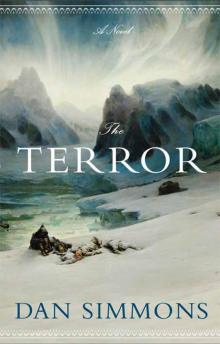 The Terror
The Terror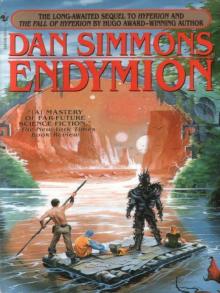 Endymion
Endymion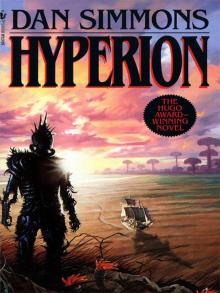 Hyperion
Hyperion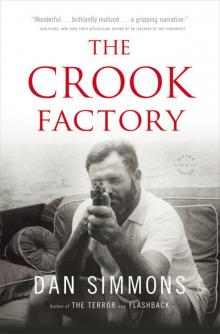 The Crook Factory
The Crook Factory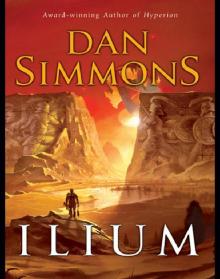 Ilium
Ilium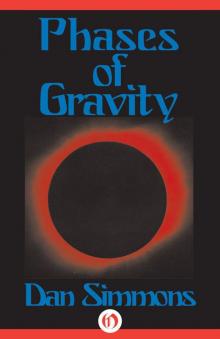 Phases of Gravity
Phases of Gravity Hardcase
Hardcase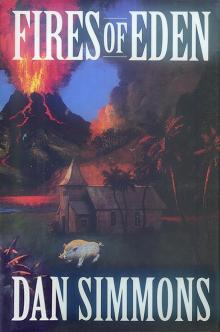 Fires of Eden
Fires of Eden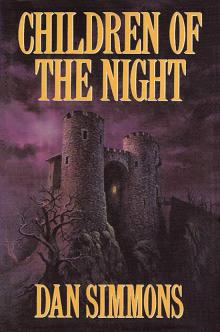 Children of the Night
Children of the Night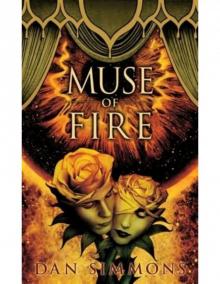 Muse of Fire
Muse of Fire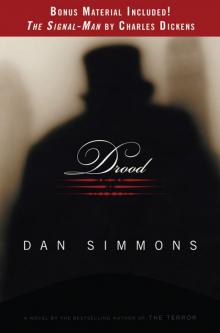 Drood
Drood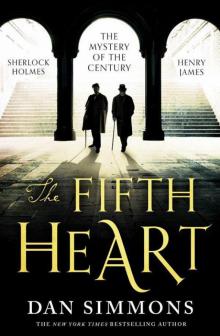 The Fifth Heart
The Fifth Heart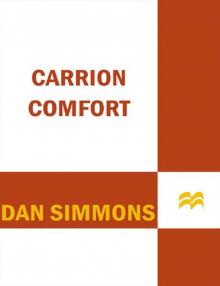 Carrion Comfort
Carrion Comfort The Hollow Man
The Hollow Man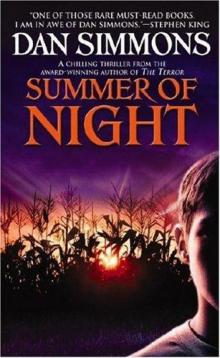 Summer of Night
Summer of Night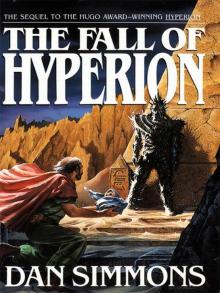 The Fall of Hyperion
The Fall of Hyperion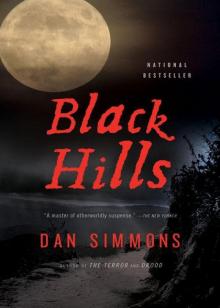 Black Hills
Black Hills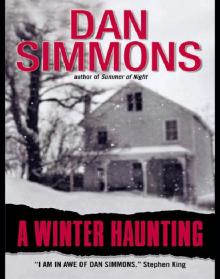 A Winter Haunting
A Winter Haunting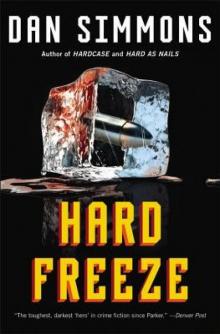 Hard Freeze
Hard Freeze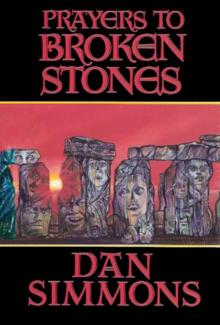 Prayers to Broken Stones
Prayers to Broken Stones Hard as Nails
Hard as Nails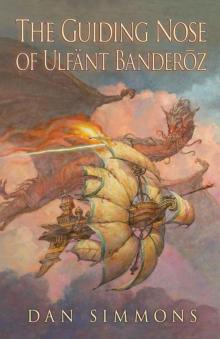 The Guiding Nose of Ulfant Banderoz
The Guiding Nose of Ulfant Banderoz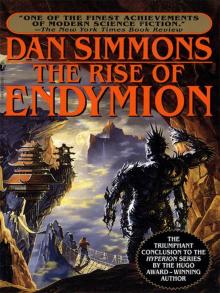 The Rise of Endymion
The Rise of Endymion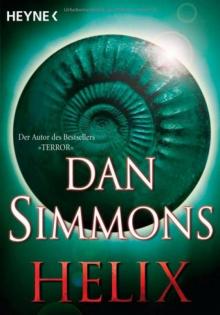 Orphans of the Helix
Orphans of the Helix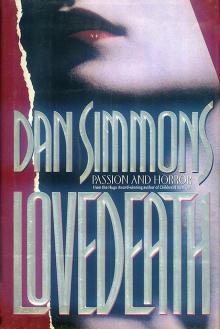 Lovedeath
Lovedeath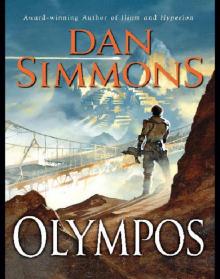 Olympos
Olympos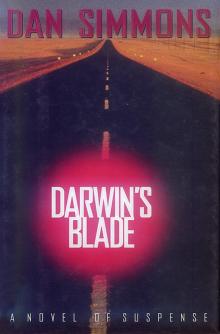 Darwin's Blade
Darwin's Blade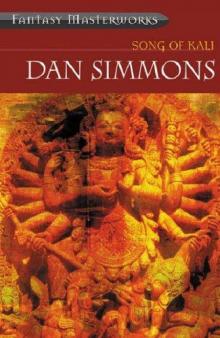 Song of Kali
Song of Kali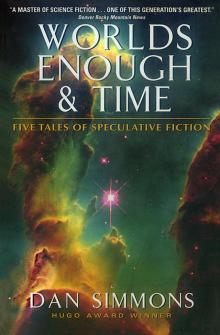 Worlds Enough & Time: Five Tales of Speculative Fiction
Worlds Enough & Time: Five Tales of Speculative Fiction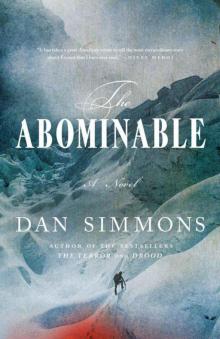 The Abominable
The Abominable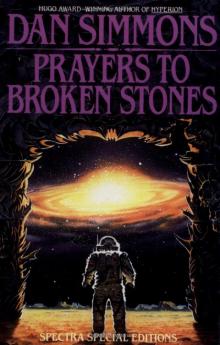 The Death of the Centaur
The Death of the Centaur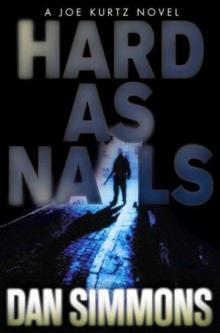 Hard as Nails jk-3
Hard as Nails jk-3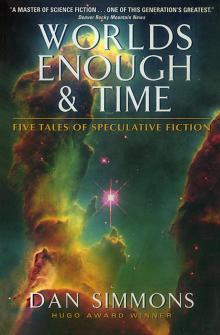 Worlds Enough & Time
Worlds Enough & Time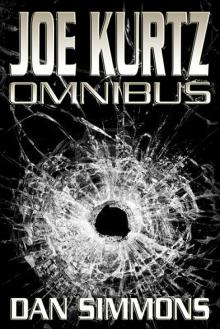 Joe Kurtz Omnibus
Joe Kurtz Omnibus The Hyperion Cantos 4-Book Bundle
The Hyperion Cantos 4-Book Bundle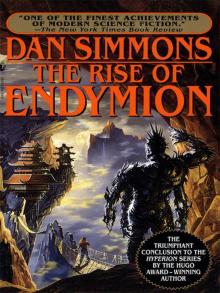 Rise of Endymion
Rise of Endymion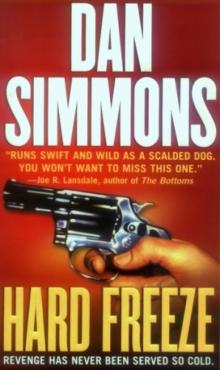 Hard Freeze jk-2
Hard Freeze jk-2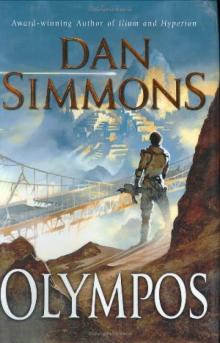 Olympos t-2
Olympos t-2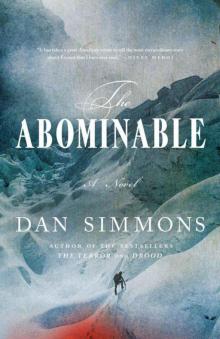 The Abominable: A Novel
The Abominable: A Novel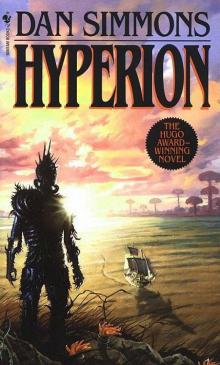 Hyperion h-1
Hyperion h-1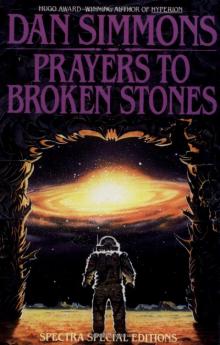 Remembering Siri
Remembering Siri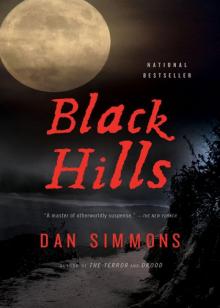 Black Hills: A Novel
Black Hills: A Novel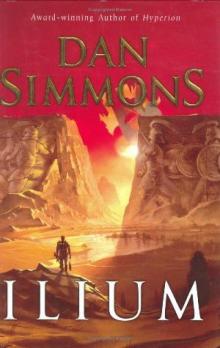 Ilium t-1
Ilium t-1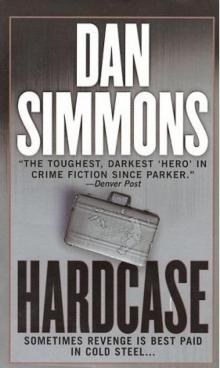 Hardcase jk-1
Hardcase jk-1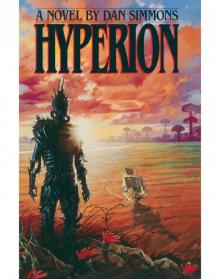 Hyperion 01 - Hyperion
Hyperion 01 - Hyperion